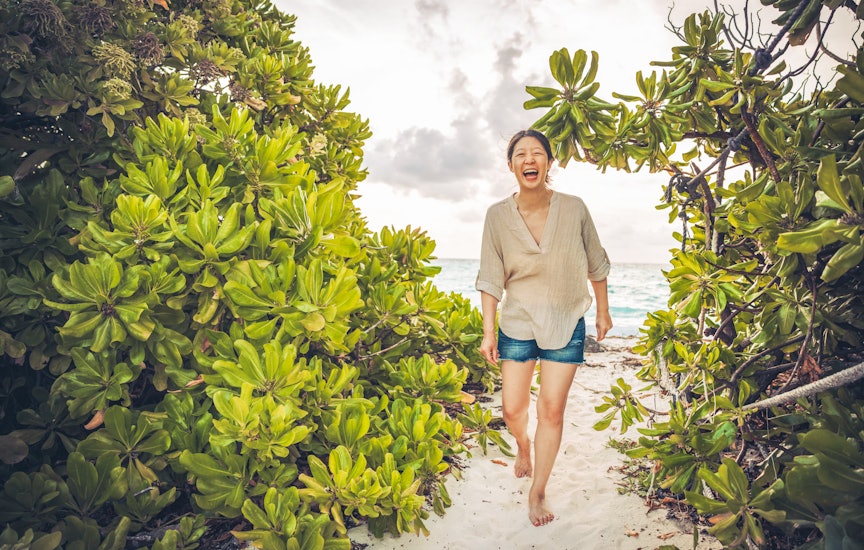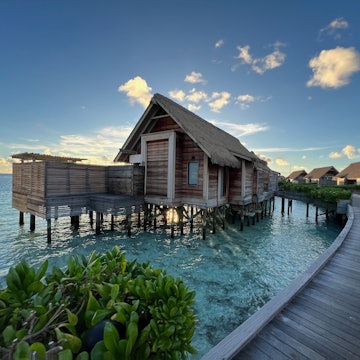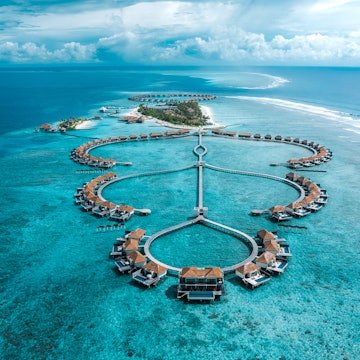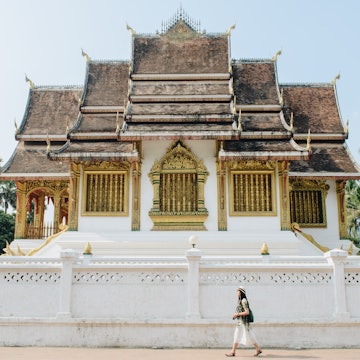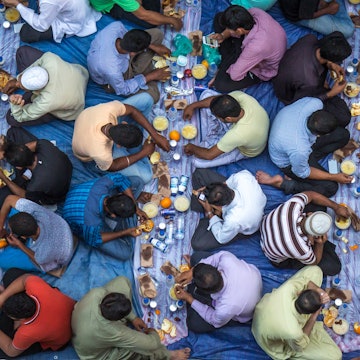

Don't let some admin hold you back from the vacation of a lifetime in the Maldives © skynesher / Getty Images
With its gleaming turquoise lagoons, bamboo-thatched overwater bungalows and sugar-white sands, the Maldives is one of the world’s most desirable beach destinations.
Every year, almost two million travelers touch down at Velana International Airport for the tropical trip of a lifetime. The last thing you want is to miss out on a vacation in paradise because you forgot to check visa requirements and, luckily, we're here to help.
Fortunately, the visa process is surprisingly easy. Whether you’re sticking to the local islands or zipping off to a private hideaway, here’s everything you need to know about visa requirements for the Maldives.
How to get a visa on arrival
Travelers from every country in the world can get a free 30-day tourist visa stamped into their passport when they arrive in the Maldives. Sounds too good to be true, right? Well, tourism is the largest sector of the Maldives' economy, so the government has tried to make it as easy as possible for vacationers to access these pristine islands.
To get your visa on arrival, you just need a follow a few key guidelines. Your passport must be machine-readable and valid for at least one month past your departure date, and you must show evidence of your return flight and hotel booking confirmation – the airline and immigration may ask for this information.
Official regulations state that you should be able to show proof that you have the funds to support your stay in the Maldives, but this is rarely requested from travelers with resort bookings. Be prepared that immigration officials may ask for evidence of cash or a bank statement – around US$100 per day of your stay should be sufficient. Any travelers arriving from countries where yellow fever is endemic must show a vaccination certificate upon arrival.
Every traveler needs to complete an Imuga form 96 hours before both their arrival and departure flights. The digital form is free and requests basic information like a photo of your passport, flight number, duration of stay, where you’re staying and where you’re heading after the Maldives. Upon completion you'll get a QR code that you can store on your smartphone – it will be scanned by immigration at the airport.

What if I want to extend my visa?
Having too much fun in paradise? We don’t blame you. If you want to extend your 30-day tourist visa for an extra 60 days, giving you a total of 90 days in the Maldives, just talk to your resort or guesthouse. They will work with immigration on your behalf to arrange your visa extension.
The resort will let you know the documents you’ll need to renew your visa, including a full page in your passport, a recent passport-size photo, and confirmation of your stay and onward flight. The fee for extending your visa is Rf750. It’s recommended to start this process at least 10 days before your visa expires, but remember requirements are always subject to change.

Can I get a working holiday visa?
The Maldives does not offer working holiday visas. But if working on a small tropical island or aboard a boat in the Maldives sounds appealing, working visas are available if you can secure a job at one of the 180+ resorts or hotels. An approved Work Permit issued by the Ministry of Economic Development is required before applying for a Work Visa. From there, workers must meet requirements like having a passport valid for one year, a passport-sized photo, a medical health report, and all other necessary documents. Your employer will be able to guide you through the process.







